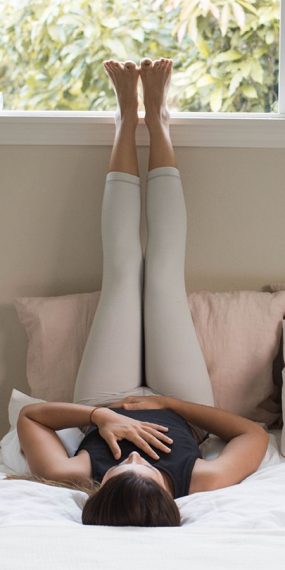 Generalised anxiety disorder (GAD) can affect you both mentally and physically. Symptoms can present themselves at any age and any time. Some people may suffer from one or two of the symptoms or them all. If you are finding your anxiety too much to handle you should seek advice from your doctor. Anxiety can change your body, mind and behaviour so it is important to notice the different physical symptoms. Here are some of the most common symptoms to look out for:
Generalised anxiety disorder (GAD) can affect you both mentally and physically. Symptoms can present themselves at any age and any time. Some people may suffer from one or two of the symptoms or them all. If you are finding your anxiety too much to handle you should seek advice from your doctor. Anxiety can change your body, mind and behaviour so it is important to notice the different physical symptoms. Here are some of the most common symptoms to look out for:
Noticeably strong, fast or irregular heartbeat
This is one of the physical symptoms I personally find very hard to control. I notice that when I find myself in an uncomfortable position or with someone I feel particularly anxious around my heartbeat is out of control. I use breathing techniques to help relax me, and meditate every evening to destress from the day.
Shortness of breath
This symptom can show up out of nowhere and normally appears with the previous symptom. As above, try different breathing techniques and excuse yourself from situations where you find yourself feeling a shortness of breath. Think about things or people you are grateful for and flood your brain with positive thoughts.
Feeling sick
Most people who suffer from anxiety will at some point feel so worked up that they feel sick. I always seem to feel sick before going into a stressful situation at work or in my personal life. I have found that thinking about things you are grateful for and taking deep breaths can help this symptom.
Stomach ache
As someone who suffers from IBS I understand that GAD can cause unbearable pain. It is important to remember that stomach aches and butterflies are very common when you have anxiety and there are some things that you can do to help. One of the main things that you can do is eat well and follow a balanced diet. You can also practise mindfulness techniques such as taking deep breaths, reminding yourself of things that relax you and make you feel happy and writing down the things that are making you feel anxious, a.k.a your triggers.
Muscle aches and tension
This is something that I didn’t know was a symptom until I spoke with my doctor. I noticed that I was feeling really tense at night and had aches in my arms and legs. When the doctor asked me about feeling tense I explained that I had noticed that I was clenching my fists a lot whether it be while holding a lump of blue tack or clutching onto items of clothing. I found that doing some simple yoga stretches throughout the day and before bed really helped with any aches and tension I was feeling.
Difficulty falling asleep
This is a symptom that can really affect your daily life. When you haven’t slept well it becomes a lot harder to concentrate, you become more irritable and it can make you feel on edge. There are lots of different ways in which you can try and reduce your anxiety at night to help you sleep better. Check out our blog post on how to improve your sleep habits.
We will all experience some form of anxiety in our lifetime. If you can start to spot physical and psychological signs of GAD it might mean that you can find strategies to help you manage it. If you’re really struggling to cope, please seek the advice of a doctor.
